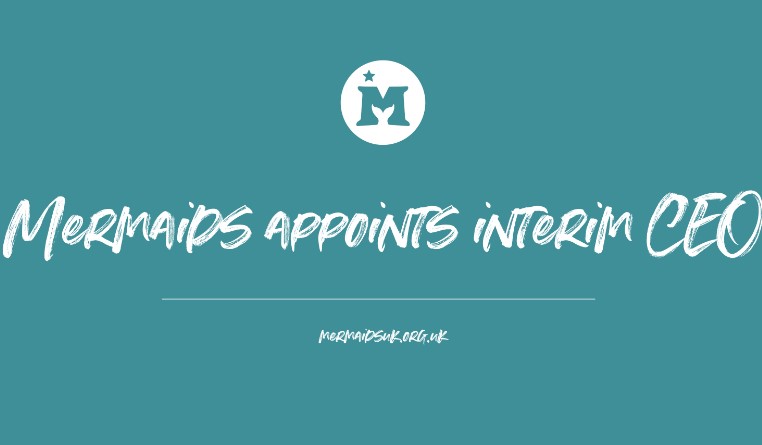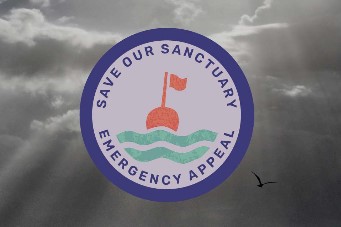The UK Bill of Rights has been proposed as a replacement from the Human Rights Act, but charities are concerned about the impact it will have on the work they do. A collaboration fighting the change talks to Melissa Moody about why.
_______________________________________________________________________
Before Boris Johnson resigned from his post as Prime Minister, he announced a reform to the 1998 Human Rights Act (HRA), spearheaded by Dominic Raab, aiming to replace it with a UK Bill of Rights. It’s unclear whether this will still go ahead under Truss or Sunak, but charities are still preparing as if it will.
Under the current system, advocacy charities are part of the system upholding rights set out in the HRA, in addition to organisations such as the Human Rights Commission and CQC. It’s over 60 of these advocacy, information and advice charities and organisations that have come together to raise awareness about how the proposed changes to the HRA may affect the work they, and other charities, do.
“One of the key areas proposed is removing positive obligations,” explains Helen Moulinos, CEO of POhWER. These require the state to take action to protect citizens against threats to their human rights. The proposed Bill of Rights would offer opt-outs to public authorities to pick and choose whose rights they supported and if/when they supported those rights. In an open letter to Boris Johnson, the collaboration pointed out that “many of the people we support are socially excluded, vulnerable and/or marginalised.”
“If we have to wait for rights to be breached, and then take action afterwards, that’s going to make it really challenging,” Helen Widbore, director of the Relatives and Residents Association points out.
Vikki Holloway, CEO of the South West Advocacy Network (SWAN) agrees, adding that the proposed changes would “definitely weaken those mechanisms” available for advocacy groups holding public authorities to account.
The introduction of a permission stage is also a concern for the groups, meaning those seeking help “have to prove they’ve got a significant disadvantage in order to be able to access justice”, Holloway says. “It’s an absolute barrier for human rights.”
Widbore adds that the bill is, in fact, likely to be the “first bill of rights in the world that will have been introduced specifically to weaken human rights protections, rather than strengthen them, which is what bills and rights normally do.”
And Carlyn Miller, head of policy and programmes at the British Institute of Human Rights, explains that many organisations, including their own, have been building up their works over the last 20 years, working with public bodies to support the use of the HRA. “It takes a lot of time to implement legislation and we’re now at a point where we’re seeing locally that public bodies are using the HRA to make decisions and they find it really useful. At this point, if we’re to scrap that completely then all of the work that’s been done… it’s going to be lost.”
Not just advocacy
Every person we spoke to emphasised the point that repealing the HRA won’t just have an affect on advocacy charities. Currently, public bodies make decisions and laws in a way that uphold human rights. “The new bill repeals this… it’s basically saying that the government doesn’t need to do that anymore,” explains Holloway.
It adds to the concern that it could stretch resources even more. In the wake of the pandemic and the current cost of living crisis, charities are already struggling.
“Funding is short already and the burden of the things we’re unable to meet may land on other services,” Holloway points out. “I think there’s quite a lot that could happen going down the line. And a lot of it remains to be seen.”
Miller agrees: “The charity sector is some really small, and some big, organisations doing really brilliant things, and we’re just stretched.” Often, the organisations trying to argue against the new Bill of Rights are doing it alongside their day-to-day jobs with little to no funding behind it.“We’re run into the ground. There’s not a day that goes by where someone isn’t working late and it shouldn’t be like that.”
Widbore echoes this sentiment, explaining that if rights protections are weaker, it will mean that other organisations will have to step in to fill in the gaps with potentially “catastrophic” consequences. “It feels it’s a dismantling of the rights that we have as human beings in society. It feels like it will be to the detriment of every person,” Holloway adds.
The power of collaboration
Having so many charities come together isn’t a unique thing, but it’s not commonplace either and it allows for a different approach to tackling the issue.
“It’s an opportunity to tap into something called the hive mind,” Moulinos says. “Being a participant of a collaboration is recognising that you may not be the smartest person in the room; your organisation may not know it all.
“I think when you enter a collaboration you need to enter it with humility and recognition that you don’t know what you don’t know.”
Holloway says that collaboration, not just this one, brings the sector together, particularly in times such as the pandemic. “We’ve really shared knowledge, expertise and passions. “It does help to increase our voice and our influence.”
Miller reiterates the importance of collaborating. “There’s strength in numbers if we’re all seeing the same things, and we’re all saying: do not scrap the HRA.”
This particular collaboration has been a great example of the power of collective working. “There is a lot of information sharing, best practise sharing, opportunity sharing as well,” Moulinos adds. Aside from that, perspectives have been shared, in addition to interpretations of legal documents and contacts. “It’s very powerful that everyone’s being very generous about sharing and the true spirit of co-working,” Moulinos says.
Miller points out that other organisations could have a much broader knowledge of other bits of the act and then we can learn from them. “It’s really difficult to understand all of the legislation that’s being changed so we all need to do our bit with different bits and then share that knowledge with each other so we can all campaign effectively.”
The collaboration also gives a voice to smaller charities who may not have been heard otherwise. “They don’t have the resources to be able to do this kind of stuff without the assistance or without joining groups like this,” explains Holloway. “It’s given much more weight and more of a voice to smaller or medium-sized providers, which may not have been there in the past.”
The power of so many charities coming together is certainly something the rest of the sector can learn from. “It’s a real step forward,” Holloway concludes.
What’s next?
Unfortunately, no one really knows what’s next for the Bill of Rights until the new Prime Minister has been chosen. In a hustings in July, Truss told Conservative MPs she was “prepared” to pull the UK out of the European Convention on Human Rights if necessary, but has been largely silent on the subject during her campaign.
Sunak has been similarly quiet, supporting the Bill of Rights when Johnson announced the reform but remaining silent on the matter during the campaign.
Widbore believes power is the motivation behind it. “It’s a power grab. It’s the government trying to take some of that power back.”
But just because the candidates have been quiet thus far, doesn’t mean they’ll abandon the act, and even after that, calls for a general election could amplify as they have during a leadership change in the past.
Miller sums it up well: “You can always hope that things will get better, but then you also have to live with the reality that they might get worse.”
Either way, this collaboration is ready for what may bring.
As Moulinos points out: “I think politicians and lawmakers are more likely to listen to a coalition of 60 charities than they are to any single one of us.”
Latest News
-
X-odus sparks video content boom among charities, report finds
-
Charity handed £25m endowment from autistic philanthropist to help others with the condition
-
Civil Society Covenant blighted by delays and U-turns, report warns
-
More than 30 jobs at risk as hospice charity looks to close home care service
-
Cranfield Trust: A guide for charity leaders on navigating local authority devolution
-
Friday funding roundup - 20 February
Charity Times video Q&A: In conversation with Hilda Hayo, CEO of Dementia UK
Charity Times editor, Lauren Weymouth, is joined by Dementia UK CEO, Hilda Hayo to discuss why the charity receives such high workplace satisfaction results, what a positive working culture looks like and the importance of lived experience among staff. The pair talk about challenges facing the charity, the impact felt by the pandemic and how it's striving to overcome obstacles and continue to be a highly impactful organisation for anybody affected by dementia.
Charity Times Awards 2023
Mitigating risk and reducing claims

The cost-of-living crisis is impacting charities in a number of ways, including the risks they take. Endsleigh Insurance’s* senior risk management consultant Scott Crichton joins Charity Times to discuss the ramifications of prioritising certain types of risk over others, the financial implications risk can have if not managed properly, and tips for charities to help manage those risks.
* Coming soon… Howden, the new name for Endsleigh.
* Coming soon… Howden, the new name for Endsleigh.
Better Society

© 2021 Perspective Publishing Privacy & Cookies














Recent Stories